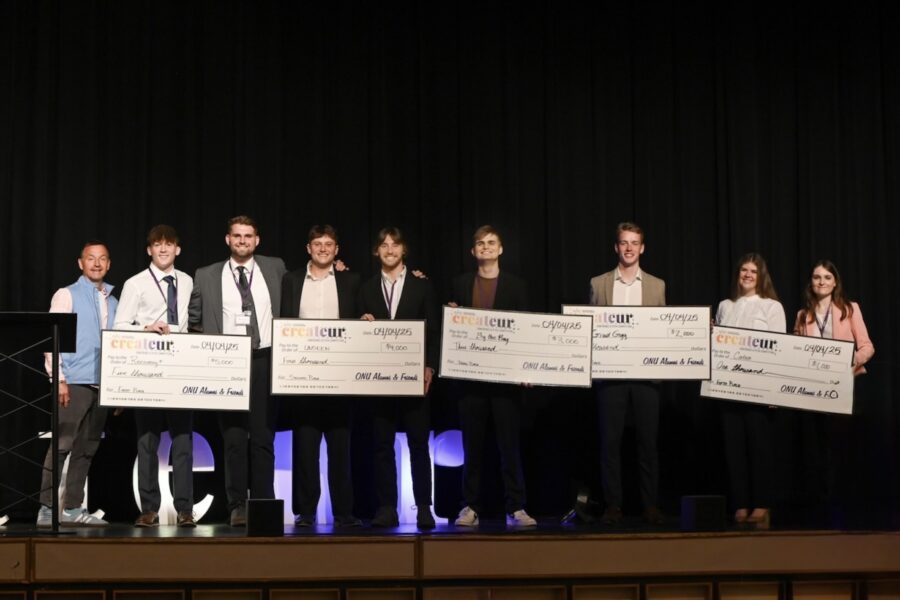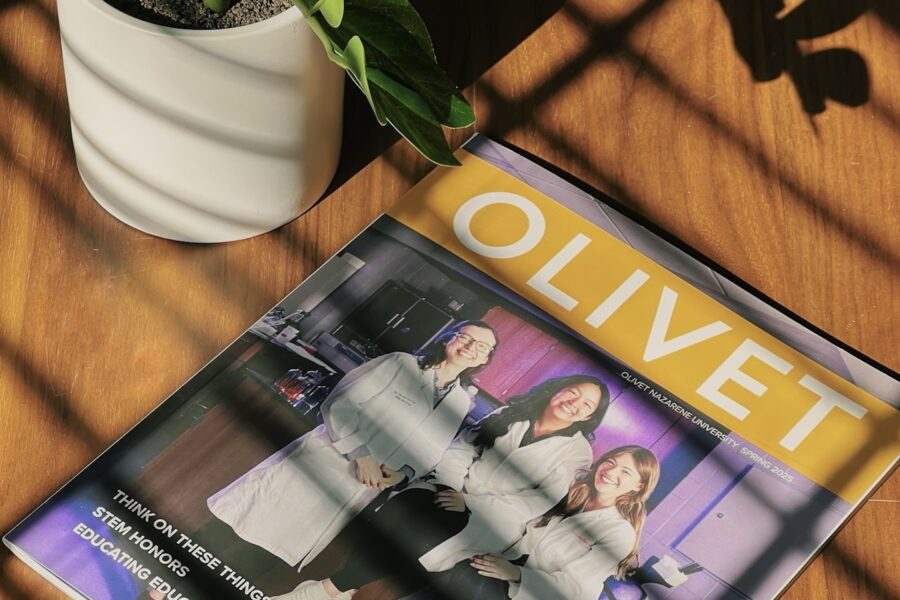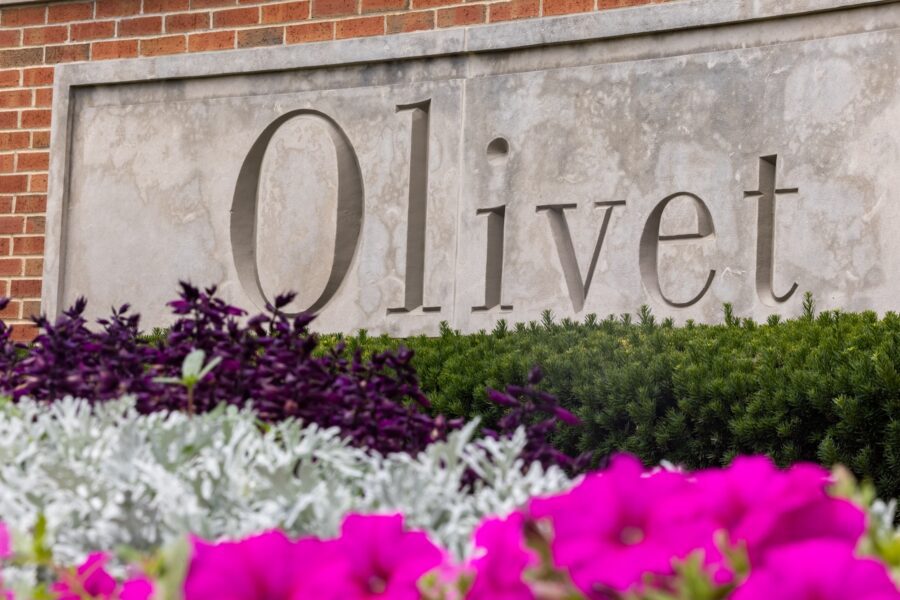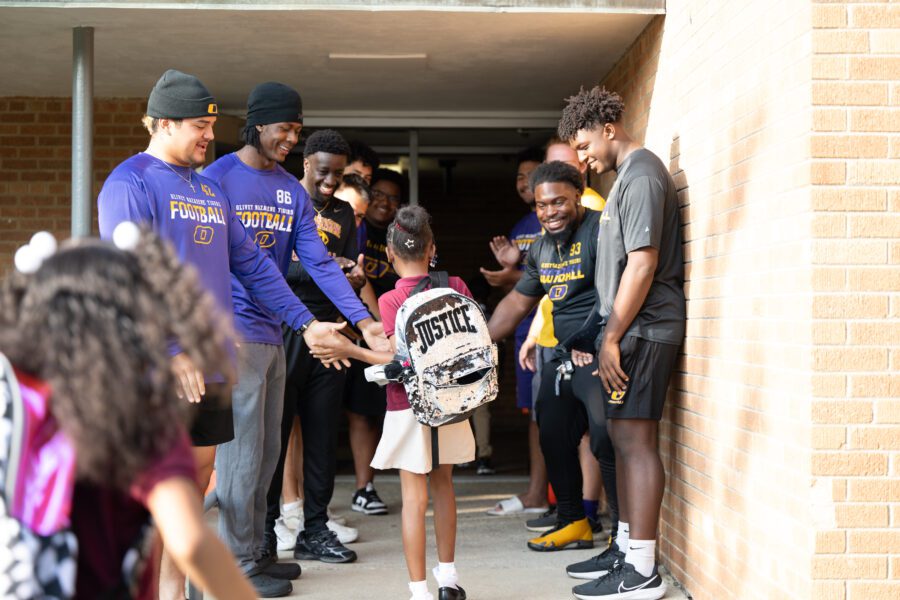
The word good has connotations of wholeness and completeness — take Genesis 1:31, for example. Good can also demonstrate a sense of kindness, morality or that which commands respect. In fact, some estimates show more than 650 uses of the word good in the Bible. So, as an institution whose mission is to provide an “Education With a Christian Purpose,” it should come as no surprise that doing good is a core focus for people at Olivet Nazarene University.
Faculty and staff seek to provide good environments in which young adults can grow, learn and thrive; in return, students are encouraged to contribute in good ways as they impact their peers, families and the greater community. The hope is that thousands of Olivet alumni that go forth from Olivet will engage their spheres of influence to perpetuate a cycle of goodness.
Whether they choose to focus their work in the local area or on the other side of the world, Olivetians pour into other people with love and compassion. From coffee and intentional chats on campus to baking and breaking bread in local neighborhoods; from cultural sensitivity research to life-changing equine therapy; and from a friendly hello at local elementary school to outfitting refugee apartments on the other side of the world, here are just a few stories of change-agent individuals who work to bring more good to the people they interact with every day.
Transferring from community college in southern Florida to full-time college life in Bourbonnais, Illinois, was not easy for Matea Johnson during her junior year, but she found a strong support system through residential life activities.
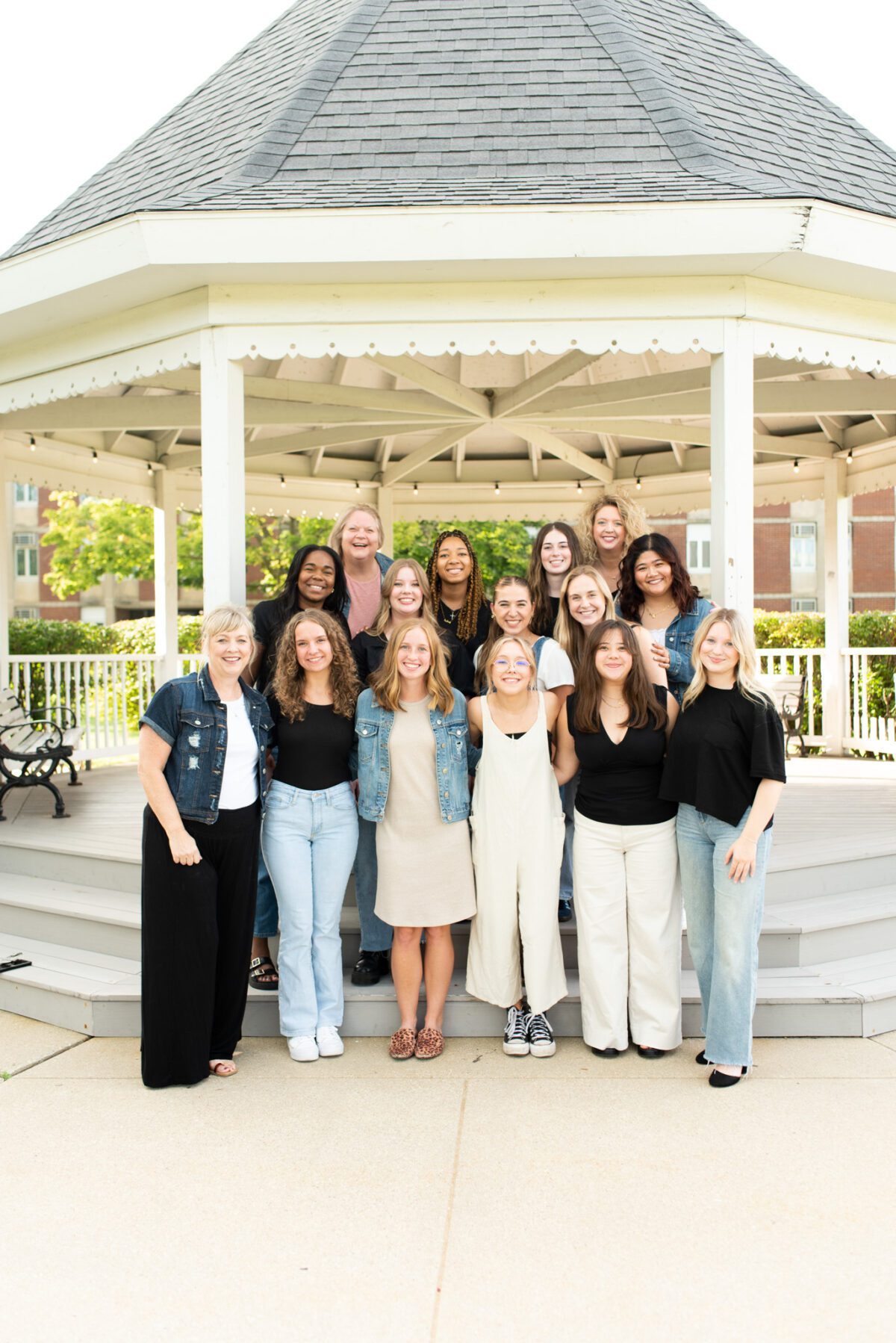
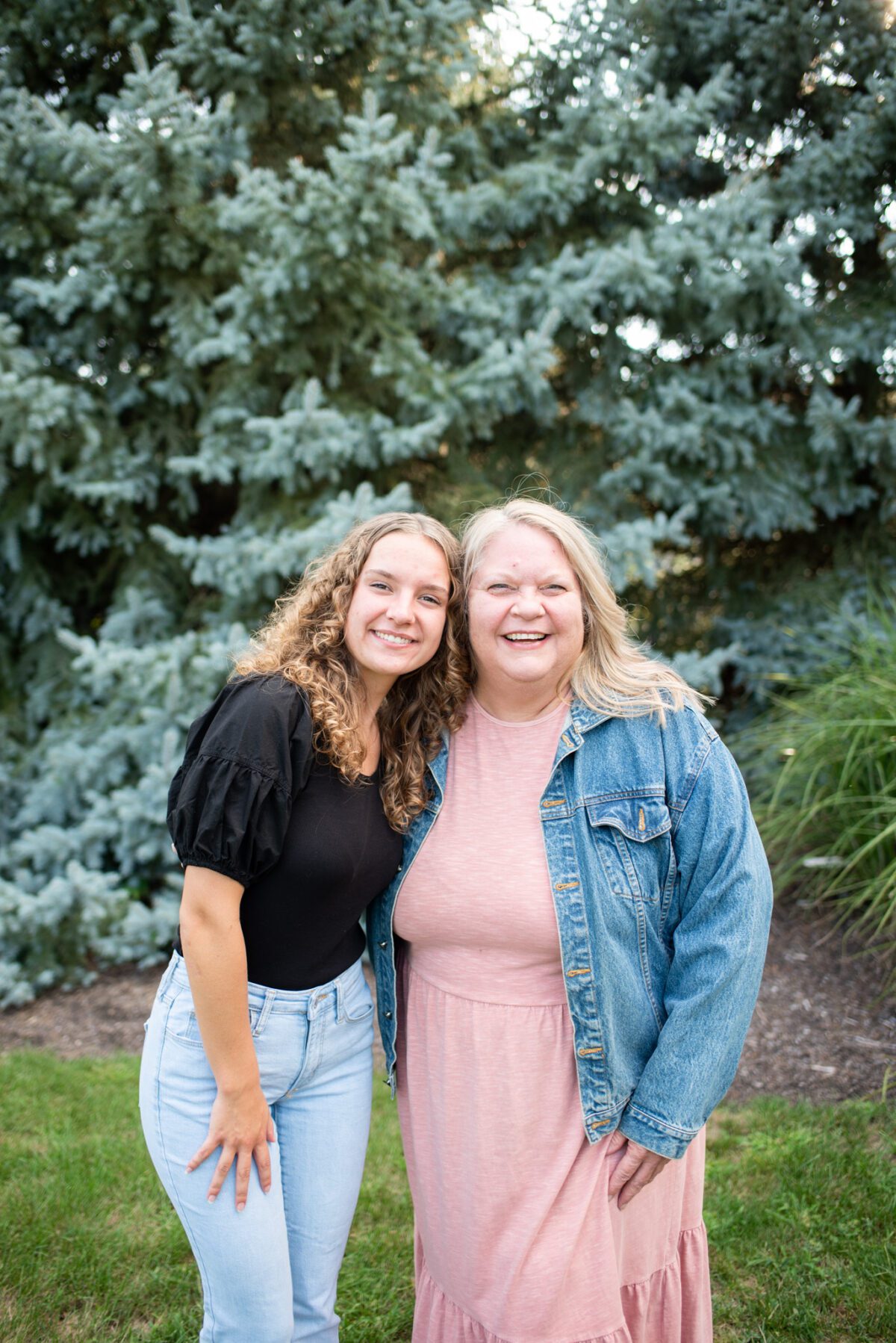
“Living on campus opens the door to being in community with people that are at the same stage of life as you,” Matea reflects. “You can build community right in your living space without trying to seek out places to find more community. My resident assistants made me feel comfortable and included, which was something I was worried about. Their kindness and love for me made me feel like I truly belonged at ONU.”
When she was given the chance to become a resident assistant, Matea jumped at the opportunity to pay that kindness forward.
“I wanted to be a friend and someone that girls could come to, especially if they have nobody,” she says. “From being a listening ear, a coffee date and a friend, I have loved seeing these girls grow through this semester. Conversations that I’ve had range from fun and innocent to deep and extremely intentional. I love to be there for my girls, but it is mentally challenging sometimes. I am so blessed to have such a great resident director, Cheryl, who refills my cup after those really hard conversations. Having such a strong support system makes the hard parts of my job much easier.”
Tiffany (Dietrich) DeRocco ’12 found career success in both the nonprofit and for-profit sectors and was on track to continue climbing the corporate ladder when the abrupt closing of her tech startup employer forced her to pause and consider the direction of her career path. Around the same time, a new pandemic-era hobby of baking sourdough bread reminded Tiffany of a dormant business idea to open a coffee shop and bakery in her hometown. The plans rolled into place, and she soon opened The Mill in St. Anne, Illinois.
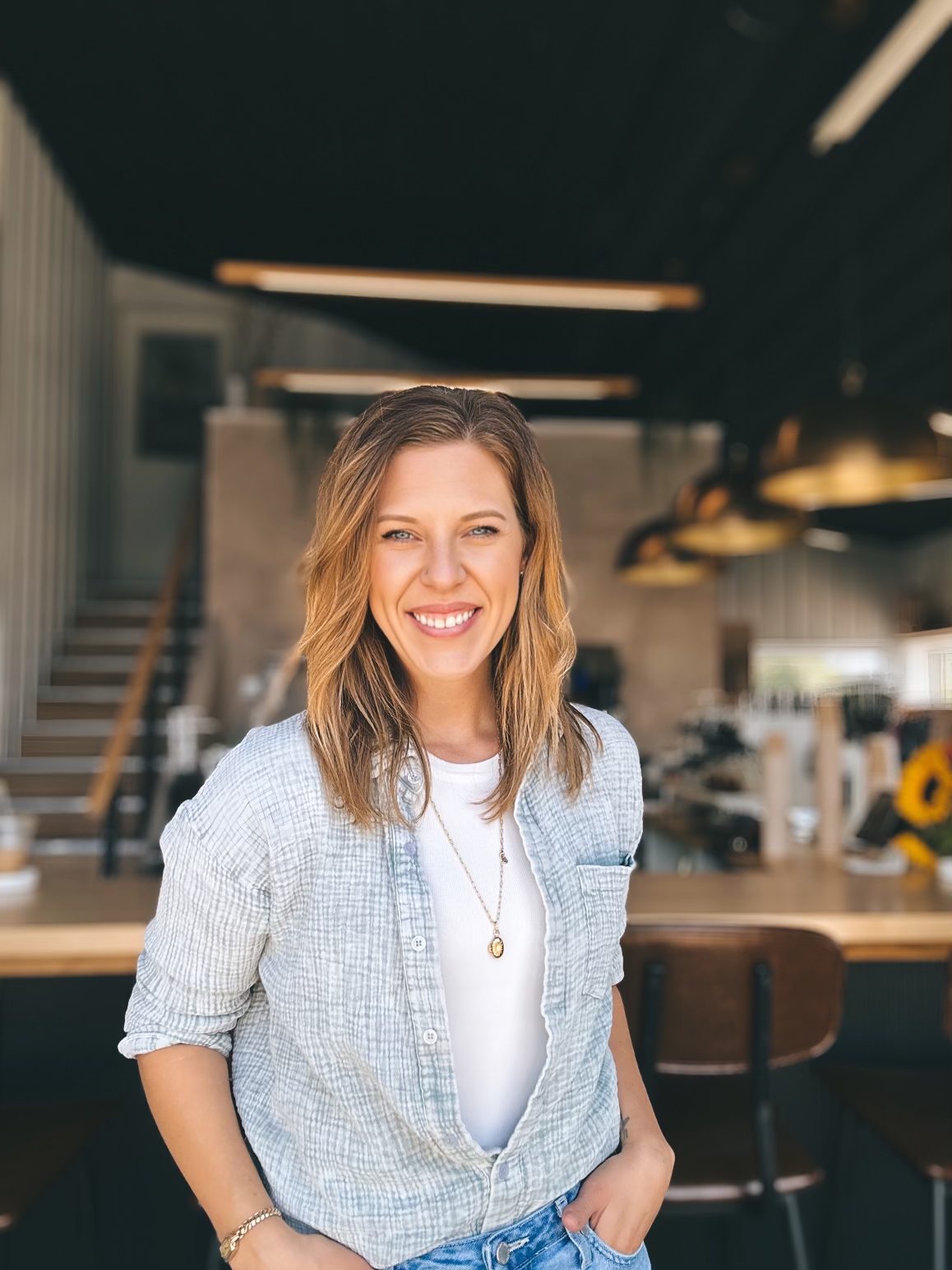
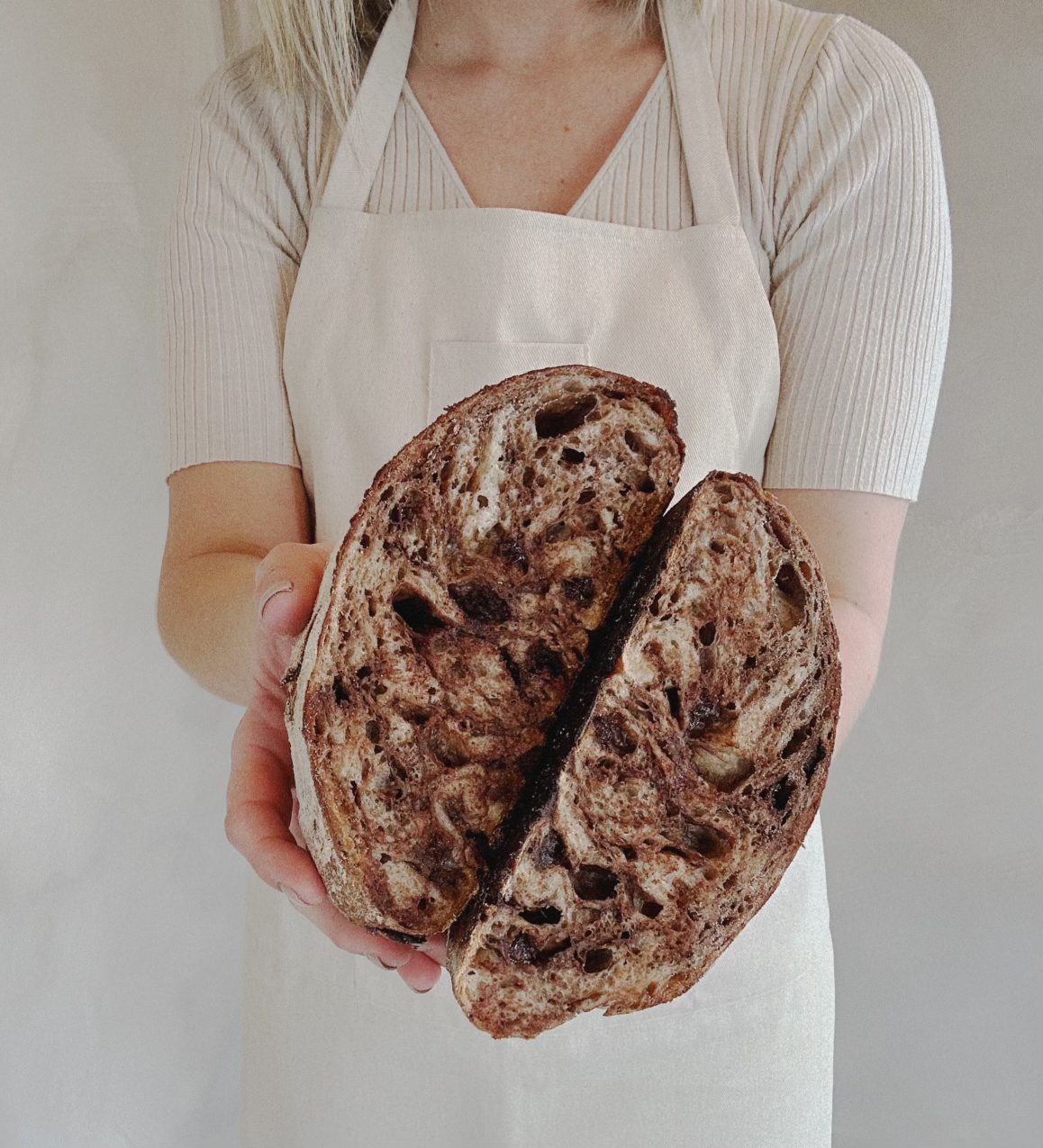
“I’ve always been drawn to opportunities in which I can contribute to building stronger communities,” Tiffany says. “I was actually rebuilding myself a bit as I built The Mill. It was awesome to see that when I opened up about my struggles, people showed up and really surprised me through their support.”
For Tiffany, baking bread, scones, biscuits and gravy, muffins and cinnamon rolls is more than just a weekly task; it’s an opportunity for her to slow down and engage her own senses. But she also loves that the products she bakes will eventually nourish other people through food and fellowship.
“I always saw this as more than just a coffee shop,” Tiffany says of the mission behind The Mill. “I wanted this to be the heart of the community, where people build connections. My team is now a regular part of the lives of our customers. We get to hold space for their celebrations and their tough stuff. I count it as an honor and privilege when customers take time to reconnect with themselves and their loved ones in our shop.”
This past fall, the Olivet football team showed up well both on the field and in the community. Through a partnership with Kankakee School District 111, members of the team regularly provided a spirited welcome to elementary students at Edison Primary School, sharing high fives and enthusiastic words of encouragement with young children as they got off the bus and entered the school.
“It is important for ONU football to intertwine ourselves in the local area because of the lifelong connections that are made,” says head coach Avante Mitchell. “When those elementary students reach the age of understanding, we hope they remember the handshakes and hugs and want to pay it forward into the lives of others.”
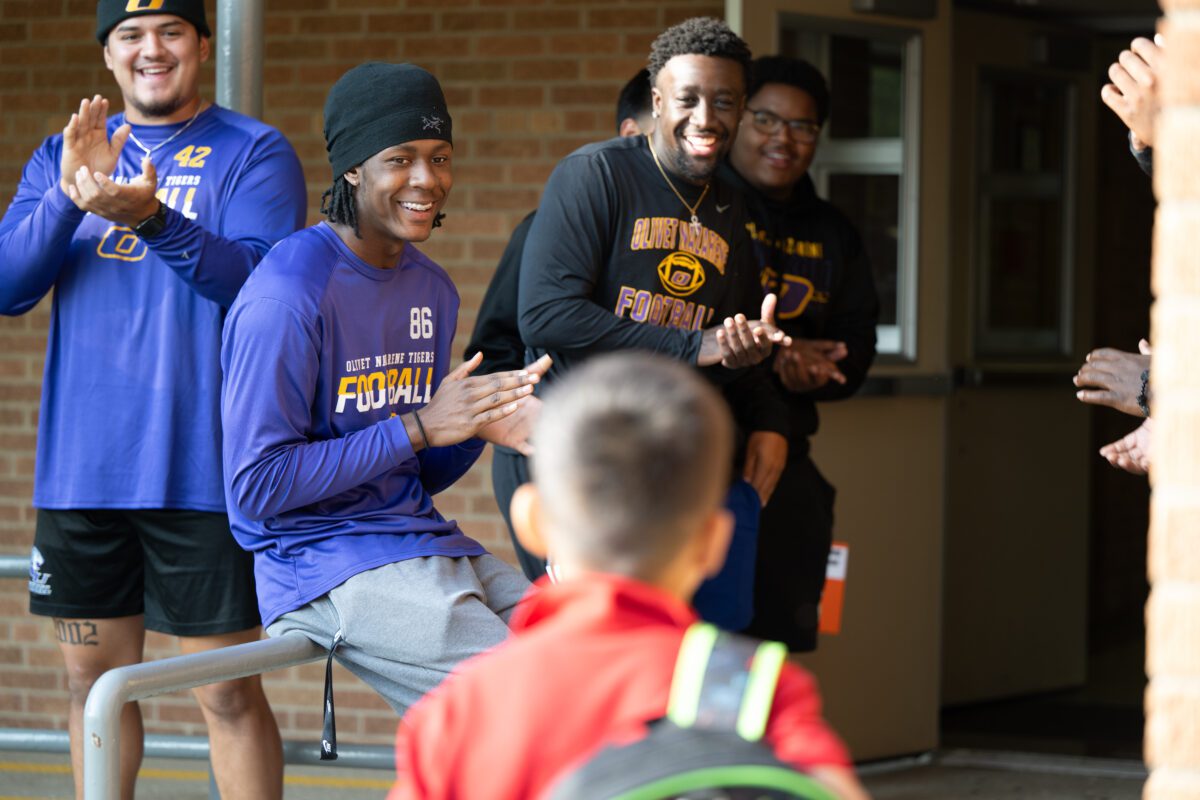
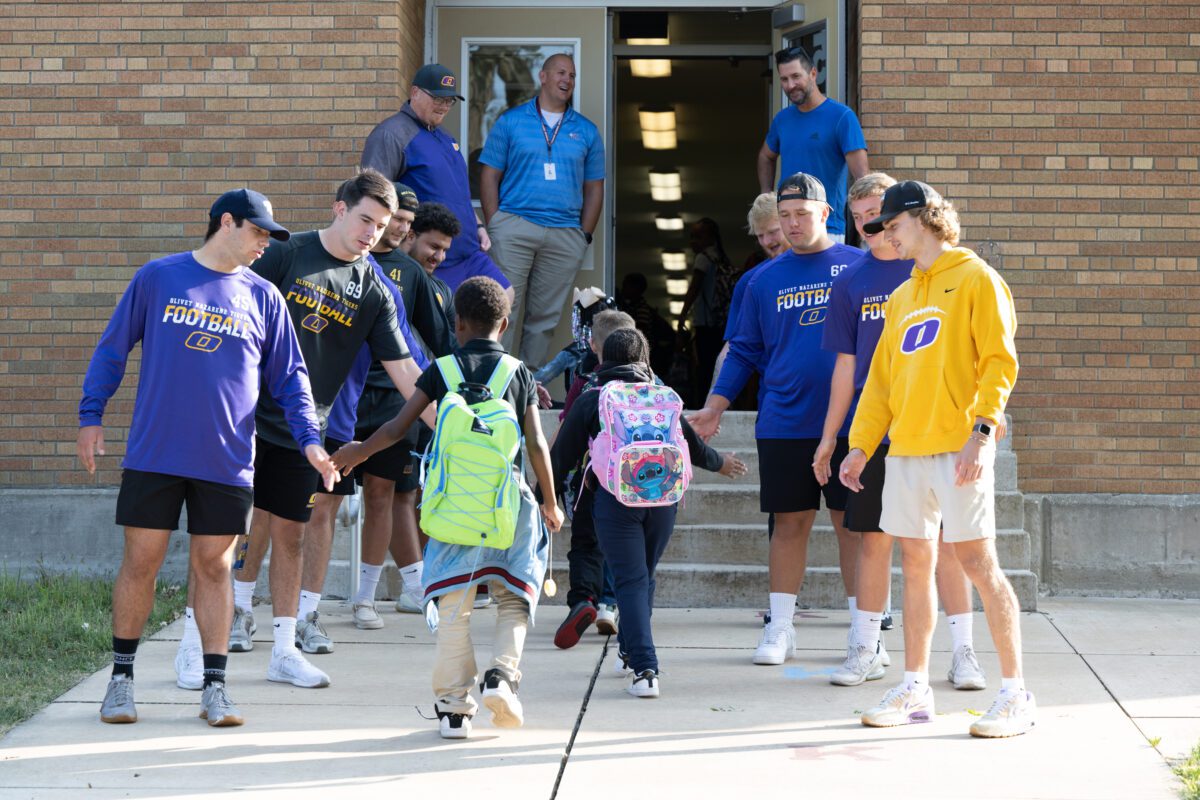
One of the core themes for the ONU football program is to “Lead courageously,” and the coaching staff frequently encourages players as servant leaders. Integral to the team schedule are community service opportunities including reading to elementary students, loading up trucks of food at the Center of Hope and moving furniture for elderly community members who can benefit from some extra manpower.
“These activities are not just photo ops,” coach Mitchell says. “Our mission is to honor Christ, and our primary goal for ONU football is to build character and integrity in young men. Whatever we can do to be a blessing to others — I know that’s what Jesus modeled for us to do.”
When Michael Remole ’06 graduated from Olivet, he anticipated working in conventional children’s ministry roles. But, after a few years of investment and a lot of burnout, he pivoted his career. Michael obtained a master’s degree in clinical counseling and returned home to his family farm to help manage and eventually build out two nonprofit organizations, Gateway Family Services of Illinois and Hooves of Hope. Hooves of Hope provides a faith-based setting for kids to learn Biblical lessons and horsemanship skills. Gateway Family Services of Illinois moves beyond the scope of traditional talk therapy methods by connecting individuals with horses to help individuals who have experienced trauma.
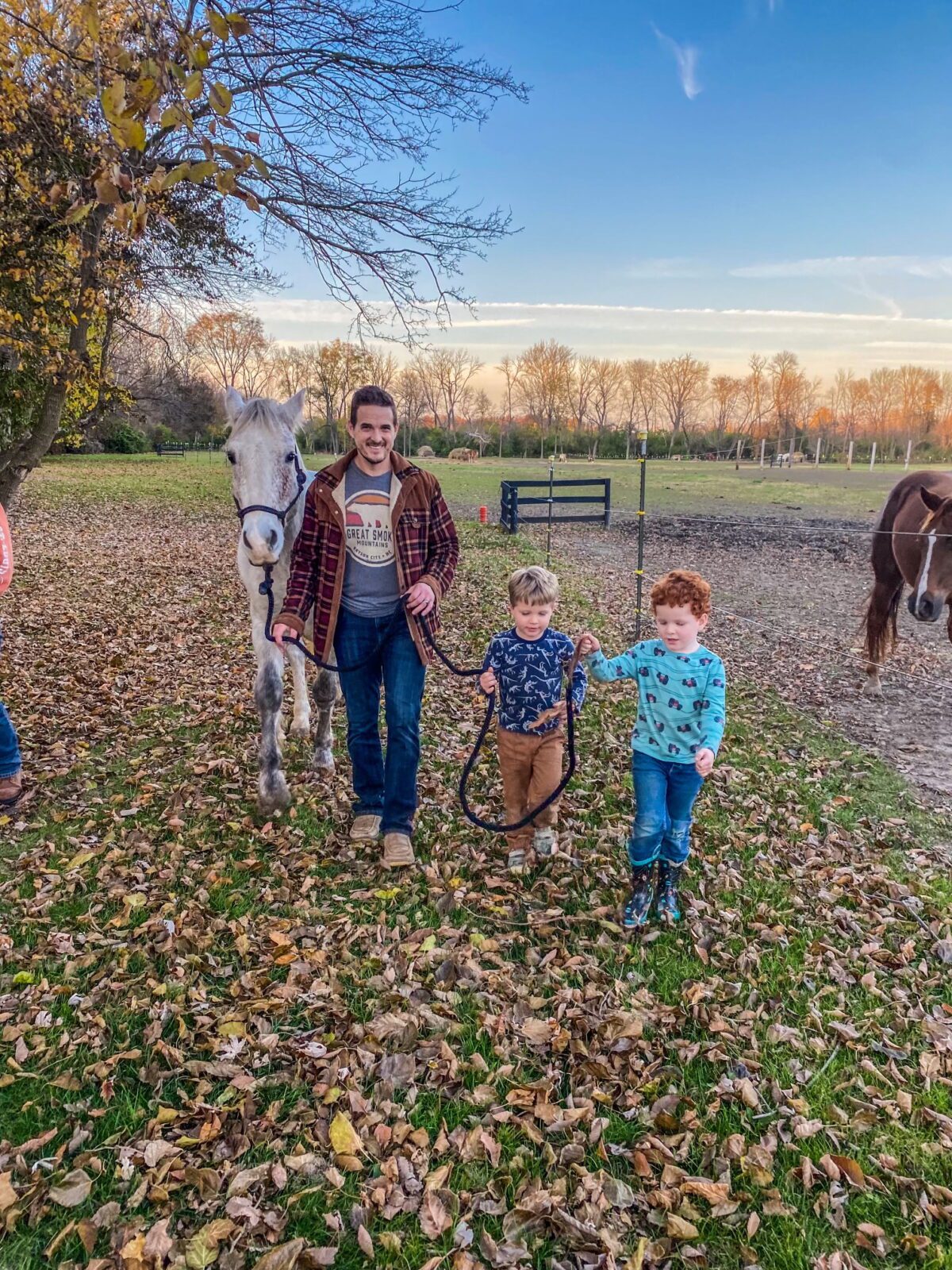
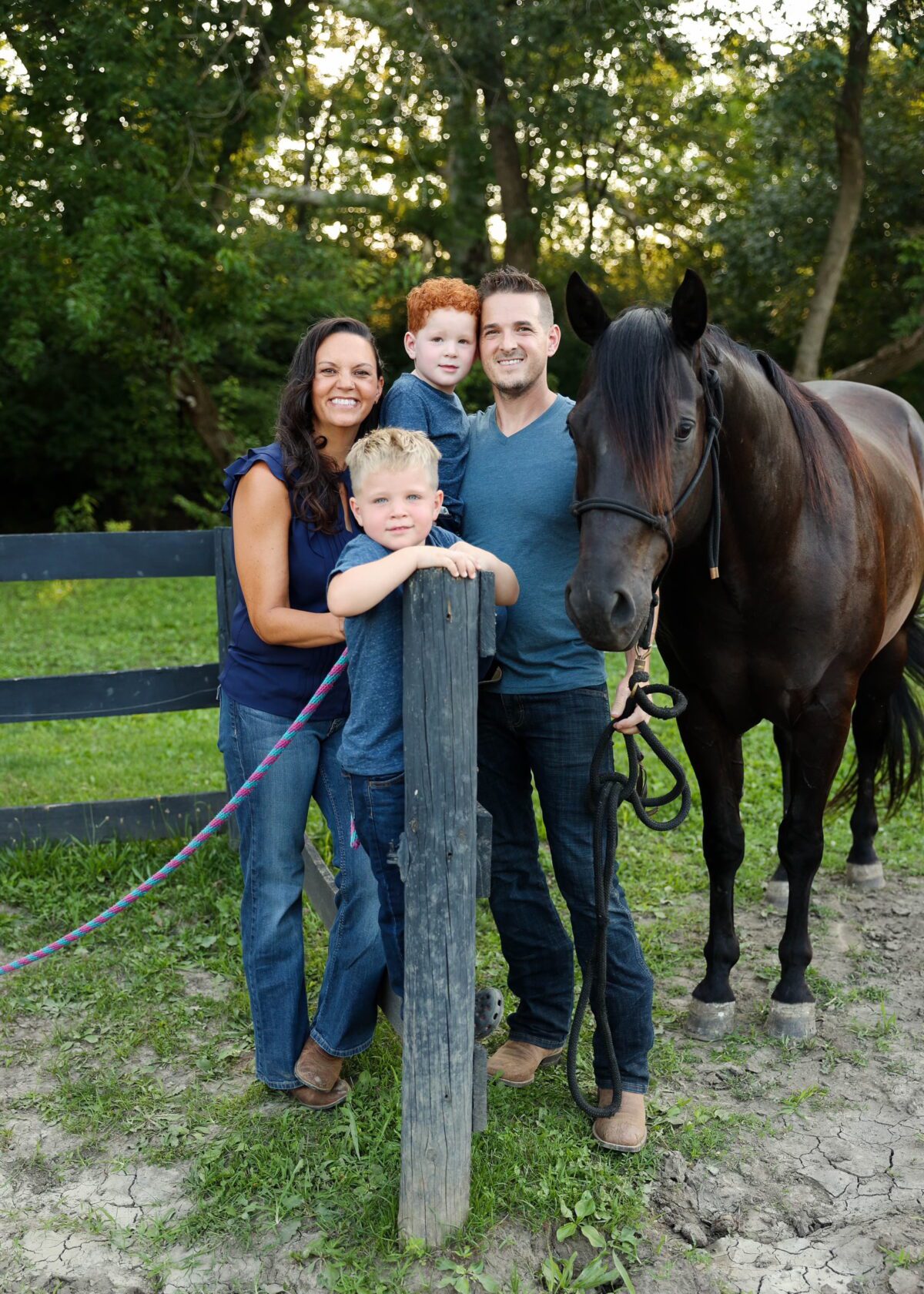
“People who come to us have relational hurts,” Michael explains. “We know that relational hurts are best healed in relationships. Connecting with the horses provides an opportunity for those to experience a healthy relationship and begin healing. For example, one adoptive family really struggled to build a connection between the father and son. Weekly visits to the farm gave them opportunities to build trust — both with the horses and with each other.”
The team at Gateway Family Services of Illinois, which includes licensed mental health professionals, equine professionals and a psychiatric nurse practitioner (plus 21 horses), provides hundreds of hours of mental health services each week to clients ranging from 2 to 94 years old. Gateway provides services in the local schools and provides services for veterans through Fall In Friday.
“Our work as therapists is to hold the hand of God as we hold space for our clients,” Michael says. “What we’ve really worked on is to create a family atmosphere with our colleagues so we avoid burnout as we provide critical services to others. Working in mental health is tough; everyone needs support.”
Abby Eaton and Allison Nagaraja, senior English education majors, have devoted the past two years to research for their Honors Program projects, both of which address some gaps in Illinois state education standards regarding culturally responsive teaching.
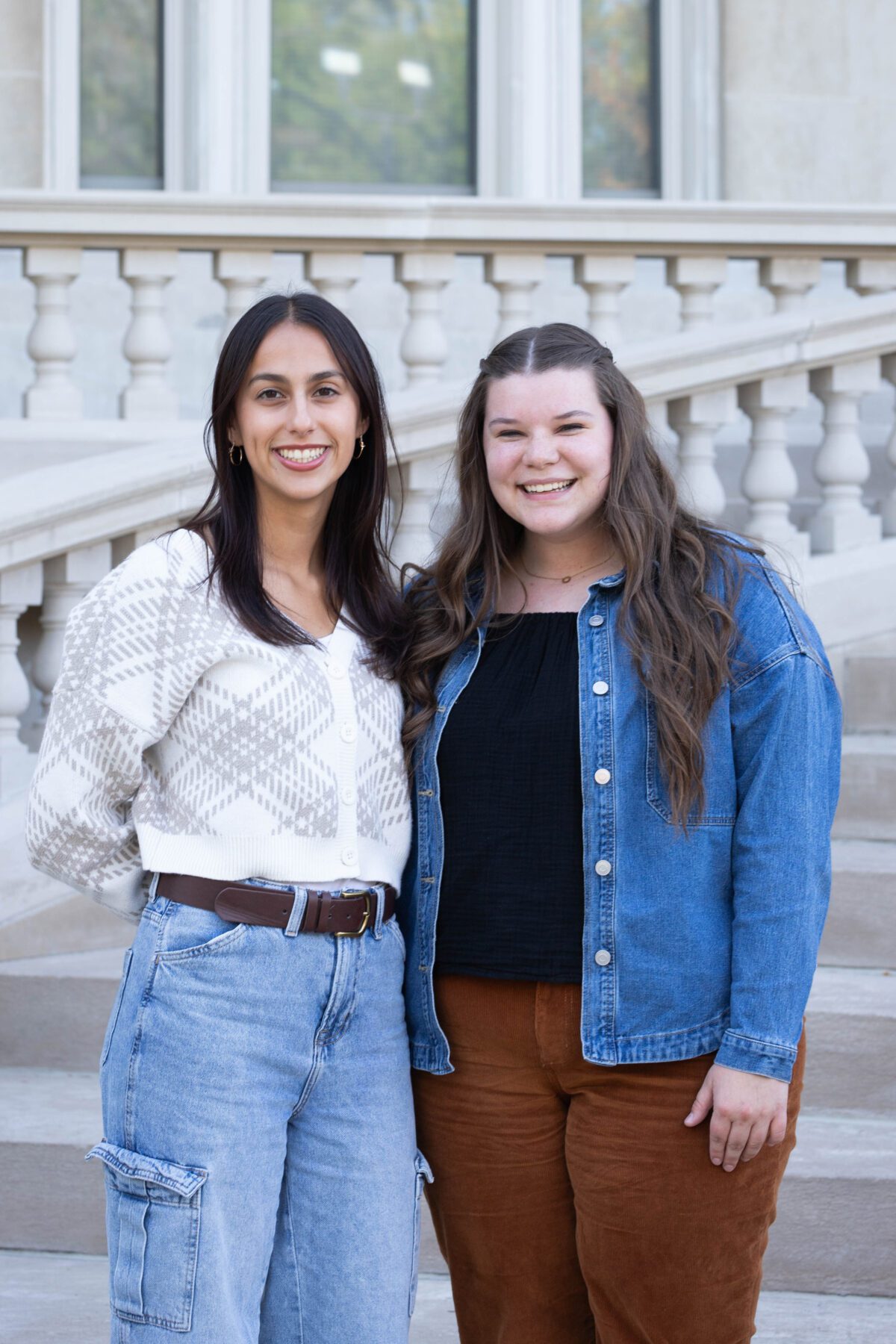
“In high school, I was shaped to see the world through a multicultural lens, reading from perspectives that shifted my perceptions of history,” Abby reflects. “I fell in love with narratives as forms of truth because they allowed me to step into the shoes of characters and see the world from their eyes. However, in taking courses at ONU and having discussions with friends, I learned that many of my peers had very limited exposure to diverse literature in their high school classrooms.”
Early in their research, Abby and Allison recognized that a set of new learning standards for the academic system in Illinois was created with great intentions but lacked additional resources for K–12 educators to effectively implement. As preservice English language arts (ELA) educators, Abby and Allison were both interested in contributing to research that would improve the integration of these standards in hopes that teachers would gain confidence in navigating sensitive topics and students would reap the benefits.
Abby surveyed secondary education teachers regarding their interactions with the standards. Utilizing that information, Allison developed a set of resources for ELA educators to integrate the culturally responsive standards. The goal is to create curriculum that not only meets benchmarks but also facilitates learning environments in which students feel seen and heard as they challenge their own perceptions of the world.
“I think this study is helpful for teachers who are trying to keep up with an ever-evolving profession,” Allison says. “I want to make the lives of teachers easier because these are the people who are molding the next generation.”
Abby says the experience has been invaluable.
“I am walking away from this project with authentic connections to teachers around me, valuable insights and strategies to better educate in a culturally responsive way, and a unique understanding and inclination to conducting and reading academic research,” Abby reflects. “I’ve been humbled and reminded that this research is so much bigger than just me.”
Jeremy ’13/’15 M.A. and Reetu (Ghotra) Height ’12 have spent the majority of their postgraduate careers focused on engaging and encouraging their communities through mission and ministry opportunities in the United States and abroad in West Africa. They now serve in Zagreb, Croatia, a main thoroughfare between Eastern European countries and the West. Reetu provides financial accountability to the Church of the Nazarene across 12 countries in Central Europe through her work as the field finance coordinator, and Jeremy serves as the lead pastor at the only Nazarene church in Croatia. While the Heights are not new to an urban, cross-cultural lifestyle, they have experienced some unique challenges in this ministry.
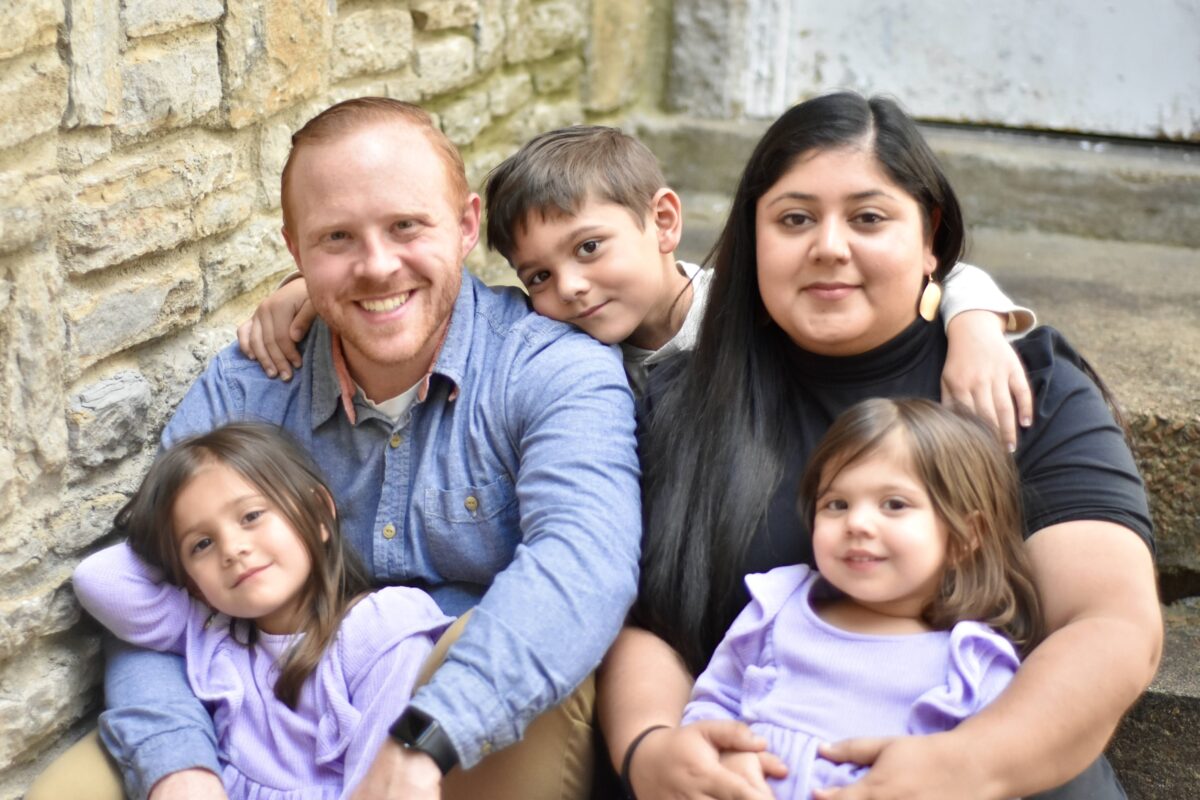
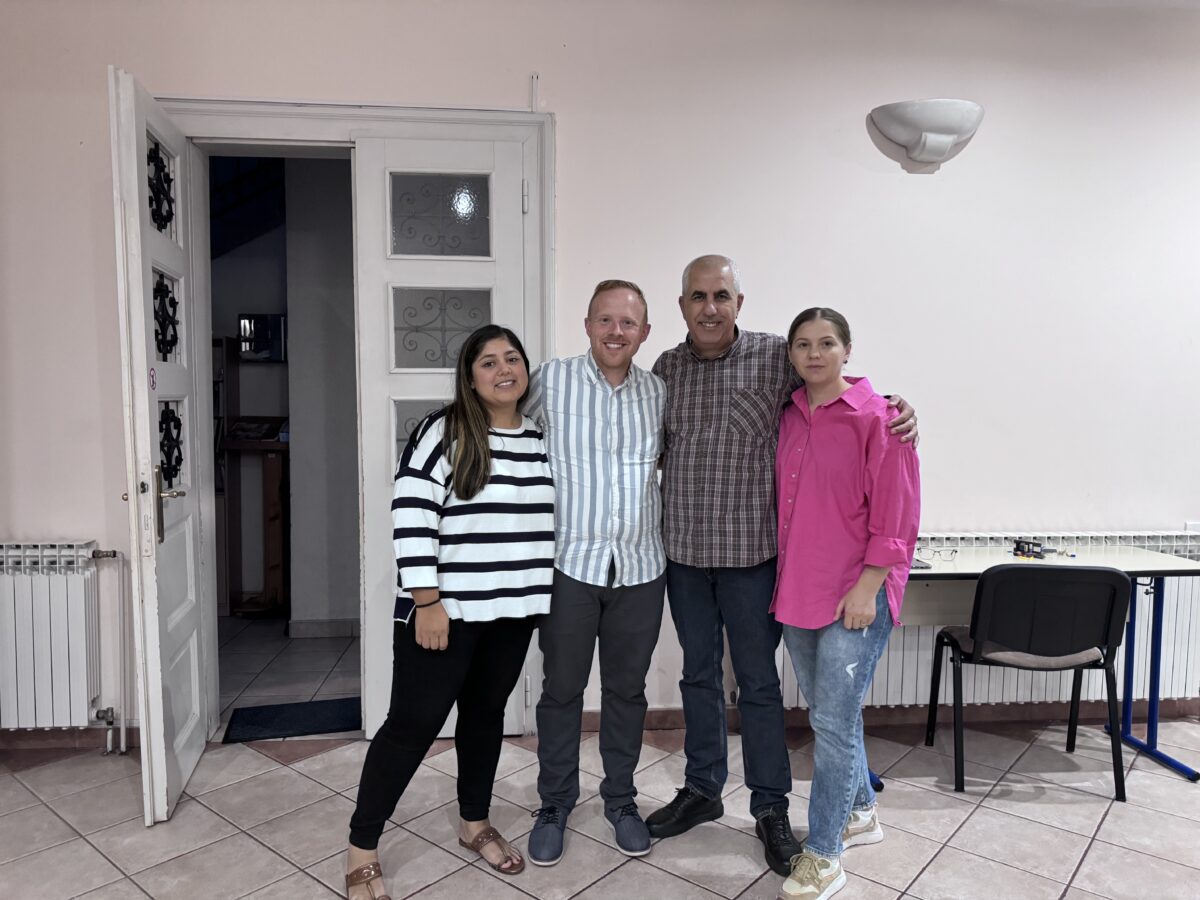
“There are so many more cultural nuances to consider when writing a sermon for an international congregation,” Jeremy says. “There’s a beautiful messiness when I preach because the message is translated into multiple languages — all at the same time as I’m speaking. I love the opportunity to connect with people from a variety of countries.”
One local ministry initiative the Heights’ church is involved in is the support of a refugee center located in a hotel at the edge of Zagreb. What was meant to be temporary housing for Ukrainian refugees has become a permanent living situation for displaced families who are now putting down roots in Croatia. In addition to providing programming for kids, the Church of the Nazarene recently partnered with IKEA and the Office of the United Nations High Commissioner for Refugees to outfit the hotel rooms with furniture that makes the rooms more suitable for long-term living.
“I’ve always had a heart for people coming from third cultures,” Reetu says of her personal interest in building relationships through crosscultural ministry. “When you’re not in your home culture, life is really hard. There are so many tricky things to sort out, like insurance, taxes and credit cards. I can really empathize with the people we get to work with because, as a child of immigrant parents, I know where they’re coming from. Now, our [three] kids get to have similar experiences in building a global mindset and perspective as we all are making new friends and establishing life in a new place.”
From Olivet The Magazine, The God Who Sees Us – Winter 2025. Read the full issue here.


